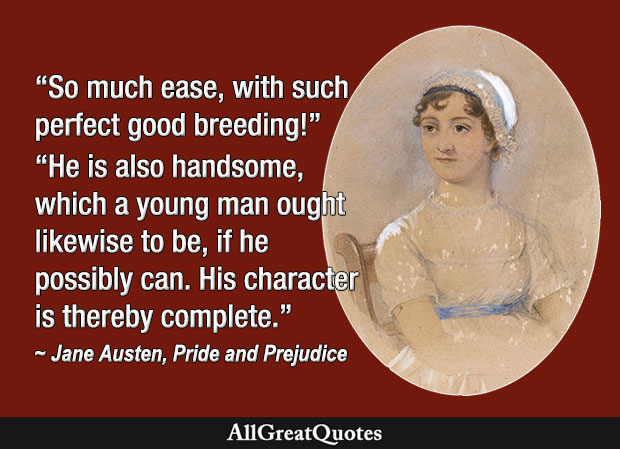"He is just what a young man ought to be," said she, "sensible, good-humoured, lively; and I never saw such happy manners! – so much ease, with such perfect good breeding!"
"He is also handsome," replied Elizabeth, "which a young man ought likewise to be, if he possibly can. His character is thereby complete."
– Jane Austen
Pride and Prejudice, Chapter 4. Jane and Elizabeth discuss Charles Bingley after their first meeting with him at the ball. Jane who was previously cautious in her praise of Bingley now tells her sister how much she admires him. While Darcy seemed snobby and rude to them, his friend Bingley appears polite and well-mannered – character traits that were very important in Austen’s day. The positive first impression Bingley has on Jane foreshadows their close relationship later in the story. Elizabeth agrees with her sister, jokingly saying that Bingley is also handsome which makes his character "complete." The dangers of relying soley on first impressions are highlighted here, as this eligible bachelor is later shown to have one important character flaw: in matters of the heart he is too easily persuaded by family and friends.

